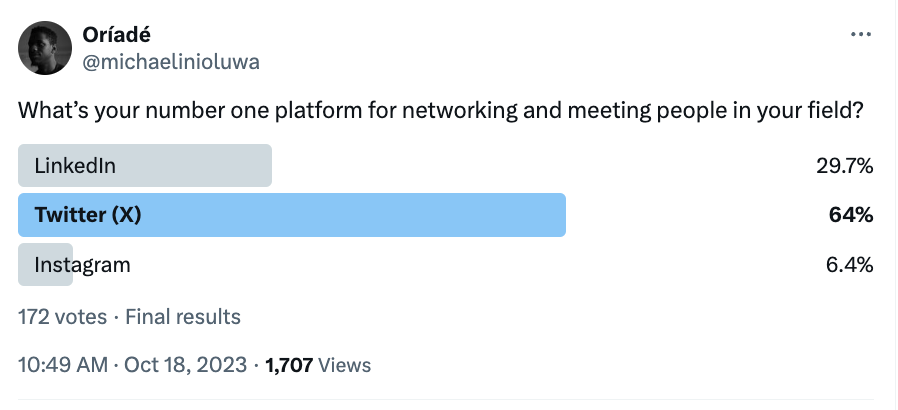Networking for Entry-Levels: How to Expand Your Professional Circle
Networking, at its core, is the art of building relationships. For entry-levels, it’s a strategy to gather insights, share experiences, and sometimes, receive mentorship from individuals within or connected to your desired industry.

If you're an entry-level job seeker, the idea of networking might look like images of corporate professionals mingling at tech events, exchanging business cards and Twitter handles. However, the essence of networking is far more straightforward and accessible. It’s about making genuine connections and expanding your professional circle—a crucial step towards unlocking doors in your career journey. In this easy-to-digest guide, we’ll go through the basics of networking, offering practical tips to help entry-level job seekers build valuable professional relationships.
Networking for entry-levels
Networking, at its core, is the art of building relationships. For entry-levels, it’s a strategy to gather insights, share experiences, and sometimes, receive mentorship from individuals within or connected to your desired industry. Networking can illuminate paths and possibilities that were previously hidden, making it a powerful tool in the arsenal of a job seeker.
In the words of Codie Sanchez, "Successful networking can be summed up as: Don't be lame. Be genuine."
Setting the Foundation: Self-Assessment
Before diving into networking, take a moment to understand yourself and your goals. Ask yourself:
- What are my career objectives?
- What industries or roles am I interested in?
- What skills or insights am I looking to gain from my network?
Clear answers to these questions will guide your networking efforts, ensuring they align with your career aspirations.
Building Blocks of Networking
1. Start with Who You Know
Begin with your existing contacts—friends, family, Twitter mutuals, or even classmates. They might know someone working in your field of interest or provide advice based on their experiences. An informal conversation can sometimes open unexpected doors.
2. Leverage Social Media
Platforms like LinkedIn and Twitter are invaluable for networking. Ensure your profile is updated and reflects your professional aspirations. Use LinkedIn to connect with industry professionals by:
- Following companies and thought leaders in your field.
- Joining groups relevant to your interests and participating in discussions.
- Sending personalized connection requests to individuals you admire, explaining why you're reaching out.
- Liking and commenting on posts of individuals you'd like to network with.

Remember, the goal is to build meaningful relationships, not just increase your connection count.
3. Attend Industry Events
Look for industry meetups, workshops, and seminars. These events are great opportunities to meet like-minded professionals and learn about the latest trends in your field. Don't forget to prepare a brief introduction about yourself, focusing on your interests and goals.
4. Volunteering and Internships
Participating in volunteer activities or internships related to your career interests is a great way to meet professionals and demonstrate your passion. These experiences not only enhance your resume but also expand your network with individuals who have seen your work ethic and potential first-hand. You can also take the bold step of reaching out to a company and volunteer to intern with their team as a way of learning and networking with industry leaders.
5. Seek Out Mentors
Identify professionals who inspire you and reach out for guidance. A mentor can provide valuable insights, advice, and introductions to other professionals within their network. Remember, mentorship is a two-way street; respect their time and show your eagerness to learn and grow.

Effective Networking Strategies
- Be Genuine: The best connections are built on authenticity. Be yourself, and show genuine interest in the people you meet.
- Practice Active Listening: Engage with what others are saying, ask thoughtful questions, and demonstrate your interest in their experiences.
- Offer Value: Networking isn’t just about what you can get; it’s also about what you can give. Share your knowledge, offer assistance, or connect people within your network when you see an opportunity.
- Follow Up: After meeting someone, send a brief thank-you note or message, expressing appreciation for their time and conversation. Keeping in touch, even if it's just a message or comment on social media, helps to maintain and strengthen your connections.
- Stay Patient: Building a professional network takes time and persistence. Focus on developing strong relationships rather than expecting immediate results.
Networking Blunders to Avoid
- Don’t Be Pushy: While it's essential to be proactive, there's a fine line between showing interest and being overly aggressive. Respect people’s time and boundaries.
- Avoid Being Transactional: Don’t treat networking as a mere exchange of favors. Aim for authentic connections rather than a quid pro quo.
- Neglecting to Prepare: Whether attending an event or meeting someone for coffee, do your homework. Know who you’re meeting, their work, and prepare meaningful questions or topics to discuss.
Conclusion
For entry-level job seekers, networking can seem like a daunting task. Yet, with the right mindset and strategies, it can become an enjoyable and rewarding part of your professional journey. Remember, networking is about building lasting relationships—focus on being genuine, patient, and persistent. By expanding your professional circle, you’re not just increasing your chances of landing a job; you’re laying the foundation for a robust career filled with opportunities, mentors, and peers who support your growth.
Ready to network with professionals, join DesignersDAO, our community of creatives and career professionals. Apply for free here.
